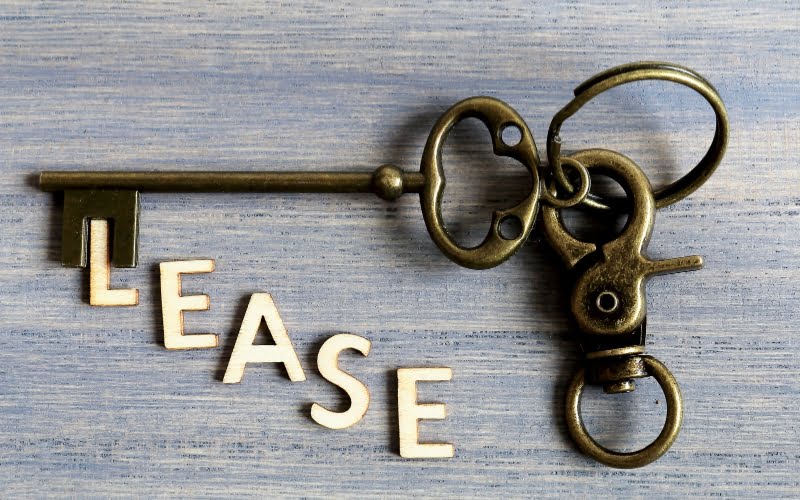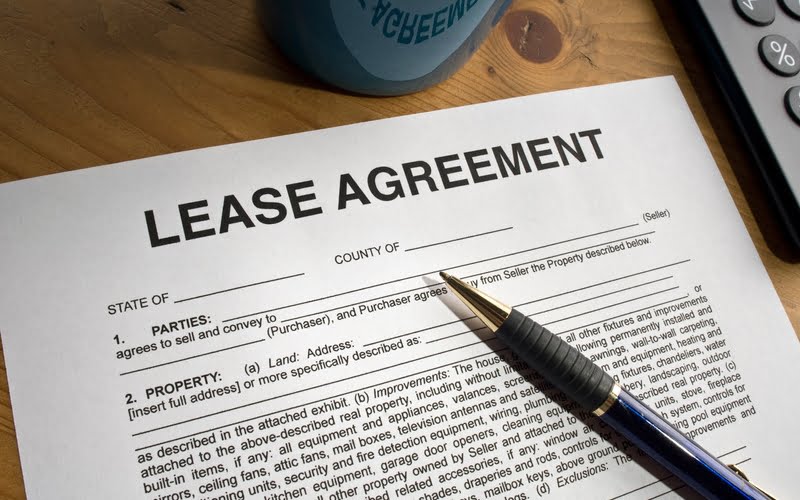Last Updated on March 18, 2024 by Kelvin Nielsen
Are you a tenant and are looking to learn about all the legal reasons to break a lease in California without penalty? If so, you’re at the right place; continue reading to learn more!
Unfortunately for tenants in California, breaking a lease doesn’t come with a lot of legal leverage. And more often than not, breaking the contractual legal agreement does come with hefty legal and/or financial repercussions.
That said, a few exceptions do exist where you can have a legal reason to break a lease in California without penalty. That’s why it’s important to familiarize yourself with your rights under state law to know your legal options.
If you are on a month-to-month lease, though, breaking the lease isn’t a complicated process. All you’d need to do is give the landlord a 30-day notice. After the 30 days are over, you can move out of the property without penalty.
However, when it comes to a fixed-term lease, you’re usually obligated to stay until the end of the term. Which, can be anything between 6 months and a year. To break the lease mid-lease and without penalty, you’ll need to have a legal reason.
The following are answers to commonly asked questions regarding breaking a lease in California without penalty.
Related Post: Free Legal Advice for Tenants in California: Know Your Rights
What are the Legal Reasons to Break a Lease in California Without Penalty?
As a tenant, you must have either of the following reasons to break your fixed-term lease without paying any fee.
1. You are a service member and are on active military duty.
The Servicemembers Civil Relief Act (SCRA) is a federal law that protects the rights of military members and their families when relocated or deployed due to active military service.
To qualify under the SCRA, you must meet certain requirements. For one, you must be an active-duty member of the military, Reserve, National Guard, or a commissioned corp of the Public Health Service or the National Oceanic and Atmospheric Administration.
Two, you must have received a permanent change of station or a deployment that is going to last 90 days or more. And thirdly, you must have signed the lease before entering active military duty.
To terminate the lease due to military duty, you must notify the landlord and provide them with proper documentation. The lease will then automatically end 30 days after the next rent period.
2. There is a clause in the lease that allows for early termination.
Does an early termination clause exist in the lease agreement? If it does, then that may give you a legal reason to break the lease without penalty as long as you meet all conditions.
To break the lease with an early termination clause, you’ll need to follow the terms of the clause. Generally speaking, you’ll need to provide the landlord with proper notice as well as pay the required fees.
The following are a few things you’ll need to keep in mind when breaking a lease with an early termination clause.
- Understand all the terms of the lease agreement, such as how much notice to give and any fees/penalties you need to pay.
- Notify the landlord of your intent to leave early. This should be in writing and must state the date on which you intend to leave. You must also send it via certified mail and request a return receipt.
- Pay the penalty on time. This is usually equivalent to 2 months’ rent. If the monthly rent is, say, $1,200, then you may need to pay $2,400 in penalties.
- Move out of the property during the agreed-upon date.
3. You are a domestic violence victim.
This is also another legal reason to break a lease in California without penalty. California law protects tenants who have been victims of domestic violence, sexual violence, sexual assault, or stalking.
To break the lease early due to being a victim of domestic violence, you’ll need to provide the landlord with proper notice and documentation.

4. The property no longer meets habitable standards.
One of the responsibilities landlords have in California is providing tenants with livable premises. The property must abide by the relevant safety, health, and building codes. Among other things, it must have running hot and cold running water, effective weatherproofing, a proper heating system, and safe stairways and railings.
The landlord must also make repairs that materially affect your physical health and safety within a reasonable time. Specifically, they must conduct such repairs within 30 days of being properly notified.
If they don’t, that can give you a legal reason to break the lease in California without a penalty. Another legal right you may have is to withhold further rent payments.
5. The lease is illegal or contains unenforceable terms.
An illegal lease may also give you a legal reason to break the lease your lease penalty-free. A lease can become illegal if it contains an unenforceable term, the unit is illegal, the tenant is a minor, or the agreement was signed under some sort of duress.
Unlike in other scenarios, you don’t have to meet any requirements to break an illegal lease. You can vacate the property immediately as if you never signed the lease in the first place.
6. You are a victim of landlord harassment.
California landlords have a responsibility of respecting their tenants’ peace and quiet enjoyment. A landlord cannot just enter your rental home whenever they like and for whatever reason. Here is a guide on other things a landlord cannot do in California.
They must provide you proper notification, have a legitimate reason for entry, and enter during normal business hours. If the landlord repeatedly violates these rules, you may have a legal justification to break the lease without penalty.
Besides privacy violations, other forms of landlord harassment include constructive eviction, refusal by the landlord to make repairs, and fair housing violations.
Before breaking the lease due to landlord harassment in California, make sure that you have records of the violations just in case the landlord may want to frustrate you after moving out. Document the violations with written records and photos/videos.
To break the lease, you’ll need to file a complaint with the state’s District Court. You’ll then need to attend the hearing to present your case against the landlord. The court will then decide whether the landlord’s actions warrant a legal justification to break the lease.
7. You have a mental or physical disability.
Federal law permits tenants to break their lease early without penalty due to a mental or physical disability. Please note, however, that not all disabilities meet the requirements for lease termination.
The requirements on what constitute mental or physical disabilities are spelt out under the Fair Housing Act and the Americans with Disabilities Act. Examples of such disabilities/impairments include the following.
- HIV
- Autism
- Heart diseases
- Multiple sclerosis
- Epilepsy
- Muscular dystrophy
- Diabetes
To break the lease, you’ll need to notify the landlord of your intentions to leave and provide them with proper documentation of the disability.
If the landlord refuses to allow you to break the lease, you can file a complaint with the U.S. Department of Housing and Urban Development.
8. The landlord is retaliating against you.
In California, landlord retaliation is illegal. Under California law, you have a right to do any of the following. (Here is a guide on CA renters’ rights).
- Reporting the landlord to the local government agency for violating a health or building code.
- Withholding rent payments due to the landlord’s failure to maintain the rental property.
- Complaining to the local tenancy board for building code violations.
After exercising such rights, the landlord cannot then take any of the following actions against you.
- Raising your rent.
- Decreasing or revoking your right to enjoy services promised in the lease.
- Trying to evict you from the property.
- Threatening you verbally or physically.
Before breaking the lease due to landlord retaliation, make sure you have proper records. For instance, copies of eviction notices, rent increases, or other correspondence with the landlord. You must also show that the retaliatory action occurred right after exercising a legal right.
Can a landlord break a lease in California?
No! Generally speaking, a landlord must have a “just cause” to break a lease in California. A landlord can only break a lease for reasons such as failure by the tenant to pay rent, violation of the lease, or illegal activity.
They must then follow the proper eviction process before removing you from the property. The following is a basic overview of the tenant eviction process in California.
- Get served with the eviction notice.
- Get served with a copy of Summons and Complaint (if the matter remains unresolved).
- File a response to the eviction (if any). This can help you stop, delay, fight, or even win the eviction case.
- Attend the court hearing and wait for the judgment.
- If the judgment favors the landlord, the court will issue them with a Writ of Execution.
If the landlord tries to break the lease without a valid reason, you may be able to sue them for damages.
Can you break a lease before moving in in California?
Not really! If you have already signed the lease, then breaking the lease before moving in may not be easy. The landlord may require you to pay an early termination fee before freeing you from your contractual obligations.
Usually, a typical lease termination fee is equivalent to one or two months’ rent. The landlord may also choose to hold you liable for the cost of finding a replacement tenant.
Can you break a lease in California with roommates?
First things first, talk with your roommates. Let them know of your intentions to break the lease. Be honest and upfront about why you need to move out, and work out a solution that favors everyone involved.
If both you and your roommate are on a joint lease, then you will need to seek their permission before breaking the lease. Why? Because both of you are jointly responsible for abiding by the lease, including staying for the entire term.
After you have obtained your roommate’s permission, let your landlord know. You must provide them with a written notice of your intentions. In California, this is usually 30 days.
Next, offer to pay the penalty fee. This is typically the equivalent of one or two months’ rent. Alternatively, ask the landlord whether you can find a replacement tenant.
Can you break a lease in California due to job loss?
No! A job loss isn’t one of the legal reasons to break a lease in California without penalty. You’ll still be contractually liable for all terms under the lease, including paying rent.
A few exemptions do exist, however. The first exemption is if the lease contains a job loss clause. The other exemption is if you lose your job due to domestic violence victim. In fact, 21-60 percent of domestic violence victims lose their jobs due to reasons stemming from the abuse.
That said, if you need to break your lease due to job loss, the best scenario would be to speak with your landlord. Let them know that you can no longer afford to live in the unit. They may even allow you to find a replacement tenant to take over the lease from you, saving you from incurring any penalties.
How long after signing a lease can you back out?
Generally speaking, you cannot back out after signing a lease. Once you sign it, you become contractually obligated to abide by all its terms, including paying rent for the entire duration.
Some states have laws, however, that allow tenants to cool off after a certain period of time, usually 3 days. Unfortunately for you, California isn’t one of these states. You cannot back out of a lease after signing it, unless you have a legal justification to do so.
Examples of legal justifications include active military duty, domestic violence status, and uninhabitability of the unit.
Can you break a lease in California to buy a house?
No, this isn’t one of the legal reasons that can allow you to break the lease in California without penalty. The only exemption is if the lease agreement has a clause that allows you to break the lease early to buy a house.
You will then need to follow the requirements under the clause before moving out. Such requirements may include paying a penalty fee and providing the landlord with proper notification.
Conclusion
You must have a legal reason to break a lease in California without penalty. And even with a legal justification, you must follow certain requirements before moving out. Such as, providing the landlord with proper written notice and attaching any supporting documentation.
Disclosure: The content herein isn’t a substitute for advice from a professional attorney. It’s only meant to serve educational purposes. If you have a specific question, kindly seek expert attorney services.
Sources: California Legislative Information, Green v. Superior Court, War and National Defense Service members Civil Relief Act, law.justia.com, California Landlord & Tenant Law,

Hi, I’m Kelvin Nielsen, an experienced landlord and accomplished real estate lawyer. My focus is on answering your questions about renting in the hopes of making your life as a renter or a landlord a bit easier.







